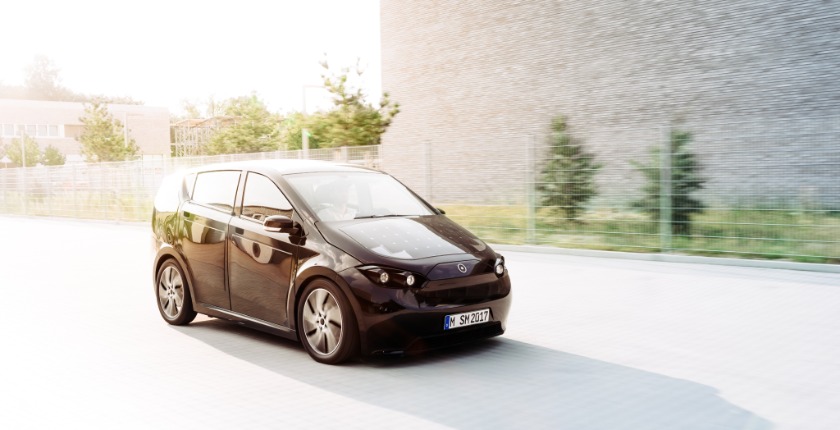1000 Solutions - October 5, 2018
Meet a solution: Sion, the solar-powered car


Written by Tristan Lebleu
The Sion’s main innovation lies in its 330 solar cells, which are integrated on the exterior of the car and capture the sun’s energy throughout the day to provide a boost of up to 30km per day. The solar cells generate a maximum power of 1,204 watts with 24 percent efficiency. As the average daily car trip distance in European countries is below 30km (18.7km in Italy; 19.3km in France; 24.6km in Germany), this means that on sunny days Sion owners could commute without even having to plug their cars. This innovation could be an answer - though partial - to one of the biggest challenges to the development of EVs: their autonomy.
You can also charge your Sion by plugging it to most power stations with three different charging methods (SchuKo: 13h; Type 2: 3.5 hours; CCS: 1h). When fully charged, the lithium ion battery provides a 250 km range.
Another big innovation of the Sion is its price: it will cost €16,000 excluding battery. This is much less than most current EVs on the market: 42,000$ for the BMW i3; 31,800$ for the Fiat 500e; 29,000$ for the Nisan Leaf. The reason for such a low cost? Sono Motors’ cofounders (Laurin Hahn, Jona Christians, and Navina Pernsteiner) have decided to pursue a single-product strategy with limited configuration to keep the car very affordable.
But the solar cells aren’t the only breakthrough innovations of the Sion. The cofounders are looking to reinvent mobility as a whole by developing an app which combines three main features: powerSharing, rideSharing and carSharing, which can very efficiently help to reduce global CO2-emissions.

While 7796 people have pre ordered the vehicle, which should be available at the end of 2019, the company plans to have 260,000 Sion on the road.

Written by Tristan Lebleu on October 5, 2018
